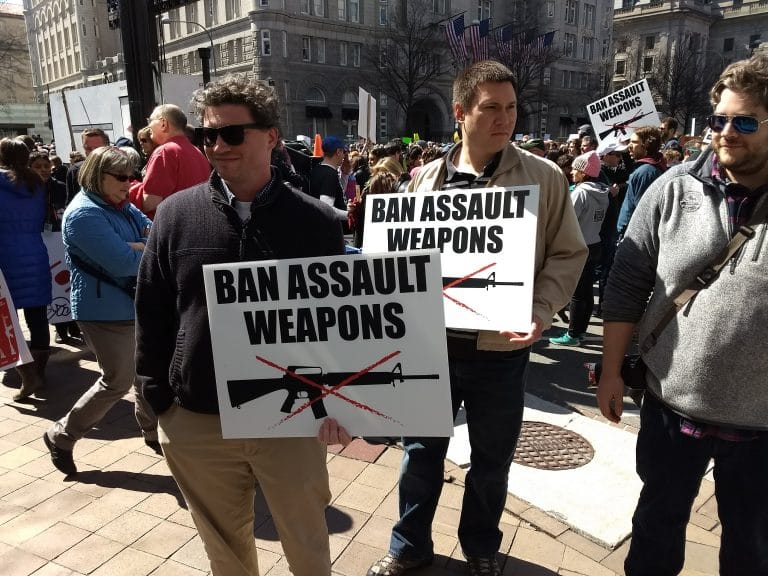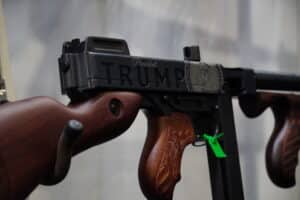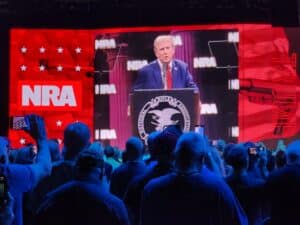The President’s gun agenda has been having a hard time through the first year of his term, and it’s only getting worse.
The House has passed two background-check expansion bills, but they aren’t going anywhere in the Senate. His plan to ban “assault weapons,” including the AR-15, hasn’t even gotten a vote in the House. Neither has his stated top priority of repealing legal protections provided to gun makers and dealers for third parties’ criminal misuse of their products.
He couldn’t even convince the Democratic Senate caucus to vote for the ATF director nominee he was counting on to shepherd his executive-branch efforts to implement gun restrictions. And it’s now unlikely he’ll get another opportunity to confirm a director before the end of his first term. That’s especially true after the new polling we saw this week.
As Americans continue to sour on the President’s handling of guns, his political capital will sink alongside his approval numbers. His approval on the issue dropped 10 points in the Economist/YouGov poll since June. It has fallen by half since the Associated Press measured it back in May.
In an atmosphere where Biden already can’t sway moderate Democratic Senators to vote for a nominee they never publicly opposed, it’s difficult to imagine how he’ll be able to convince them to vote for gun-control policies they have come out against in the past–especially while his standing with the public continues to deteriorate. Senators Angus King (I., Maine), Joe Manchin (D., W.Va.), Jon Tester (D., Mont.), and Kyrsten Sinema (D., Ariz.) wouldn’t go along what Biden wanted when he was polling 10 points better on the issue. Why would they budge on any of the gun bills he wants to pass now?
The odds get longer when you consider how low voters rank the issue of guns on their priority list. The Economist/YouGov poll found only 3 percent of Americans listed guns as their most important issue. That puts it in a tie for the 3rd-least-important issue out of thirteen polled.
As you might imagine, voter apathy tends not to generate action in DC.
So, the President is left with executive action to implement some semblance of the restrictions he seeks. He won’t have his chosen manager to push through those actions, which will handicap him to some degree. But, that doesn’t mean he won’t be able to enact sweeping changes that affect millions of American gun owners.
In fact, his administration appears to be pushing ahead with the effort to increase the ATF’s power by significantly broadening the definition of what constitutes a firearm and the effort to ban possession of nearly all of the millions of pistol-brace-equipped AR-15s in circulation. That’s despite the hundreds of thousands of mostly negative public comments on the proposals. The aggressive executive action hasn’t helped keep his approval on the gun issue up among Democrats, and it has likely driven some of the disapproval among Republicans and Independents.
But, unilateral action is the only viable approach left for him at this point. And, it’s not clear where else he’ll be able to find room to pull it off in a meaningful way. Though, it’s safe to expect him to try and do so.






